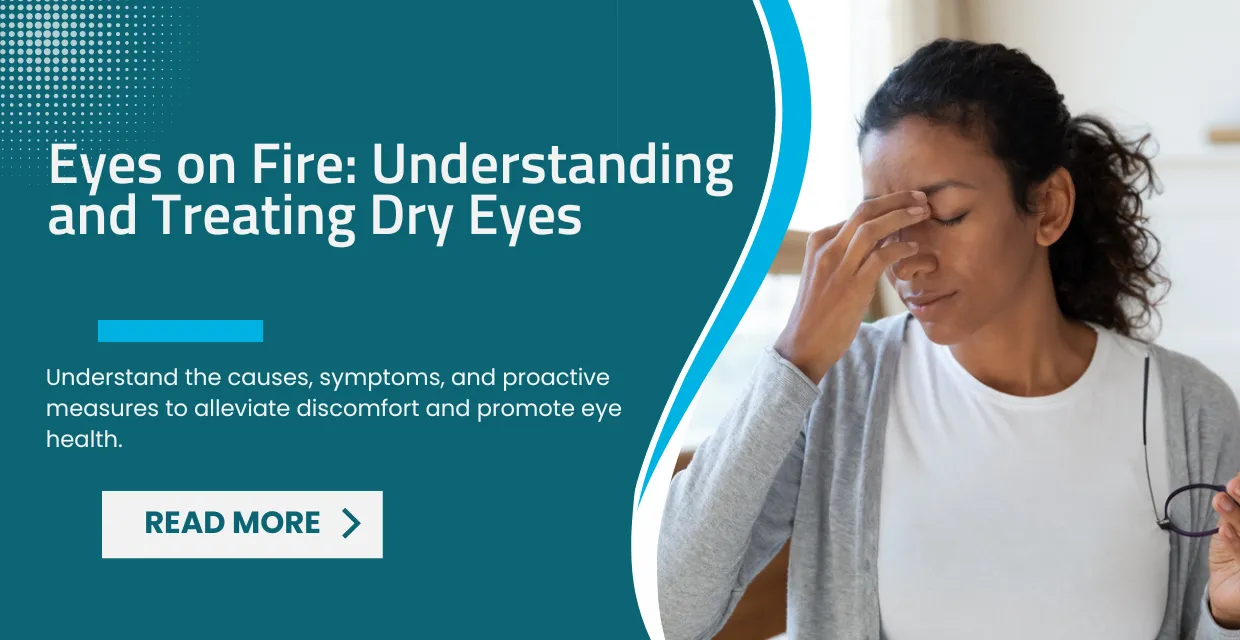Can You Really See a Difference After Cataract Surgery?
Have you ever wondered what life would be like without a clear vision? For those with cataracts, the cloudiness in their eyes can make even the simplest tasks, ...

Eyes are not only the windows to our souls but also vital for experiencing the world around us. Unfortunately, millions of people suffer from a condition known as dry eyes, which can be uncomfortable and even debilitating.
Dry eyes occur when there is an insufficient amount of tears to lubricate and nourish the eyes adequately. LifeCare Hospitals, renowned for its excellence in healthcare, offers comprehensive solutions for understanding and treating dry eyes, ensuring optimal eye health and comfort for all.
Dry eyes can result from various factors, including age, environmental conditions, medications, and certain medical conditions. The symptoms of dry eyes may include:
Persistent dryness, itchiness, or a gritty sensation in the eyes.
Excessive tearing, as the eyes try to compensate for the lack of moisture.
Redness and irritation of the eyes.
Sensitivity to light and blurred vision.
Difficulty wearing contact lenses comfortably.
Tears play a crucial role in maintaining healthy eyes. They consist of a delicate balance of water, oils, mucus, and antibodies that nourish and protect the eyes. Tears help to lubricate the eyes, keeping them moist and comfortable. When this balance is disrupted, it can lead to dry eyes and discomfort.

Dry eyes can be caused or exacerbated by various factors, including:
Age: As we age, tear production tends to decrease, leading to a higher risk of dry eyes.
Environmental Factors: Dry and windy climates, as well as exposure to air conditioning or heating, can contribute to dry eyes.
Screen Time: Prolonged use of digital devices can reduce blink rates, leading to increased evaporation of tears and dry eyes.
Medications: Certain medications, such as antihistamines and decongestants, can decrease tear production.
Medical Conditions: Conditions like rheumatoid arthritis, Sjögren's syndrome, and diabetes can contribute to dry eyes.
LifeCare Hospitals offers comprehensive solutions for diagnosing and treating dry eyes. Our experienced eye care professionals conduct thorough eye examinations to determine the underlying cause of dry eyes. Treatment options may include:
Artificial Tears: Lubricating eye drops can provide relief by supplementing natural tears.
Lifestyle Adjustments: Managing environmental factors and reducing screen time can alleviate dry eyes.
Prescription Medications: In some cases, prescription eye drops may be recommended to increase tear production or reduce inflammation.
LipiFlow Treatment: A revolutionary treatment offered at LifeCare Hospitals, LipiFlow targets blocked meibomian glands, which can contribute to dry eyes.
Prevention is essential for maintaining healthy eyes and reducing the risk of dry eyes. Some tips for eye health include:
Blink Regularly: Be conscious of blinking to help keep your eyes moist.
Take Breaks from Screens: Follow the 20-20-20 rule—every 20 minutes, look at something 20 feet away for 20 seconds.
Stay Hydrated: Drink plenty of water to maintain overall hydration, which can benefit your eyes too.
Wear Sunglasses: Protect your eyes from wind and dust by wearing sunglasses outdoors.
Dry eyes can be a challenging condition to manage, but with the expertise of LifeCare Hospitals, relief is within reach. Understanding the causes and symptoms of dry eyes is the first step in seeking proper treatment. LifeCare Hospitals, renowned as a top hospital in Kenya, provides comprehensive solutions for dry eyes, ensuring optimal eye health and comfort for all. Prioritize your eye health and schedule an appointment with LifeCare Hospitals to experience the relief and revitalized vision you deserve.
Partager cet article